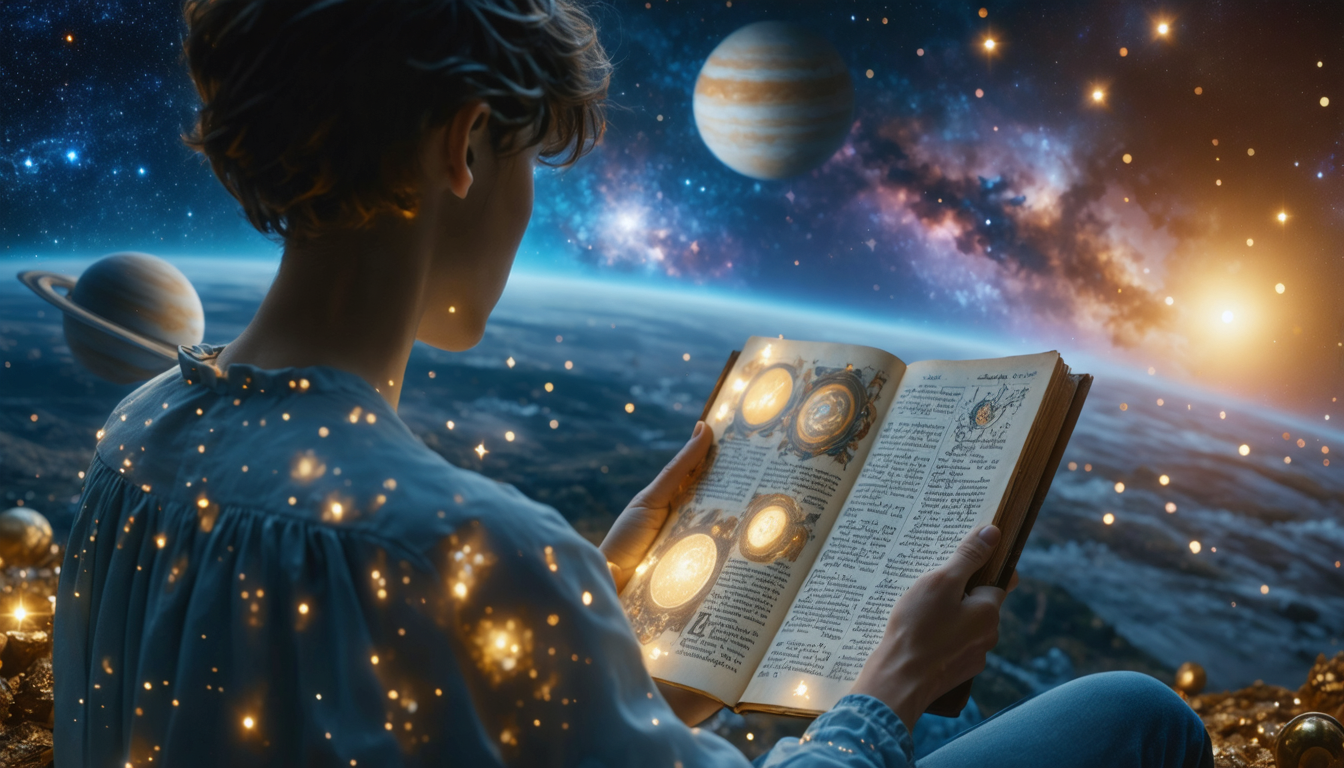Curious about what the future holds? Free horoscope readings offer a glimpse into potential opportunities and challenges based on your astrological sign. These readily available resources provide interpretations of planetary alignments, promising guidance in various aspects of life. This article delves into the world of free horoscopes, exploring their different types, interpreting their insights, and understanding their place in the broader context of astrology.
Navigating the Universe of Free Horoscopes
Navigating the universe of free horoscopes reveals a vast landscape of readily accessible astrological insights, primarily delivered through online platforms and traditional print media. These readings offer a glimpse into potential energies and themes associated with specific periods. The most common types encountered are time-based: daily horoscopes, providing brief snapshots for the next 24 hours; weekly horoscopes, offering a broader overview of trends likely to unfold over seven days; monthly horoscopes, delving into themes and opportunities relevant to the entire month; and yearly horoscopes, which attempt to outline major influences and potential turning points for the upcoming year. While full astrological analysis considers numerous factors, free horoscopes often simplify the process by focusing on a few key elements. The most central is the *sun sign*, determined by the zodiac sign the sun was in at the time of your birth. Many free readings are based solely on this position, offering generalized insights applicable to anyone born under that sign. More detailed, though still often free, readings might occasionally reference the *moon sign*, reflecting emotional nature, or the *rising sign* (Ascendant), which relates to how one is perceived and approaches the world, but these are less common in basic offerings as they require precise birth time information. Planetary aspects, the geometric angles between planets in the sky relative to your birth chart (or just your Sun sign in simpler models), are the underlying mechanics astrologers use to interpret influences, and while the *results* of these aspects are described in horoscopes (e.g., “a harmonious transit brings opportunity”), the technical details are usually omitted in free formats. The sheer accessibility and convenience of these resources are undeniable cornerstones of their popularity. Available instantly on websites, apps, and in the pages of newspapers and magazines found everywhere, they require no subscription or payment for basic access. This widespread availability has cemented their role as a familiar and frequently consulted touchstone for millions seeking guidance or simply entertainment. The practice of using celestial bodies to understand earthly events and human affairs has roots stretching back millennia, across diverse cultures from Mesopotamia and ancient Egypt to Greece, Rome, India, and China. Astrology wasn’t always a tool for personal horoscopes as we know them today; it was often used for predicting weather, agricultural cycles, political events, and advising rulers. Its evolution saw it interwoven with philosophy, astronomy (which was once considered part of astrology), and medicine. While it faced periods of skepticism, particularly with the rise of empirical science, astrology persisted, finding new avenues in popular culture. The 20th century, with its growth in mass media, was pivotal. Newspaper and magazine columns made daily Sun sign horoscopes a staple, bringing a simplified form of astrology into everyday life for a broad audience. This paved the way for the internet age, where the transition to free online and printed horoscopes was natural and explosive. Websites and apps could offer not just daily but also weekly, monthly, and yearly readings, often enhanced with graphics and interactive elements, fitting seamlessly into the demand for instant information. This modern iteration, often driven by algorithms, builds upon the historical practice but transforms it into a mass-produced commodity. While many astrologers contribute to written horoscopes, figures like Sidney Omarr were instrumental in popularizing newspaper horoscopes in the US. The transition to the digital age means much of the free content isn’t penned daily by a famous hand but rather generated or compiled. Finding reliable sources amidst this sea of information requires discernment. Look for platforms associated with established publications or reputable astrological organizations, and be wary of sites making sensational claims or requiring extensive personal data for basic Sun sign readings. Reliable sources often provide more nuanced interpretations and are transparent about the limitations of general readings. The role of algorithms and even AI in generating modern horoscopes is significant. Basic free horoscopes are often generated by algorithms that combine pre-written phrases corresponding to planetary positions relative to each Sun sign. More advanced systems might use AI to vary the language or create more fluid text. While automation can accurately apply the *rules* of basic astrological transits to Sun signs and generate text, it cannot replicate the intuitive interpretation, synthesis of multiple chart factors, and personalized approach of a human astrologer analyzing a unique birth chart. Therefore, while automating the process for *general* horoscopes is feasible and common, achieving true, personalized astrological accuracy through automation without the full context of a birth chart remains a significant limitation, highlighting why free readings are best viewed as general guides rather than precise personal predictions.
Interpreting and Applying Astrological Insights
understanding how to interpret free horoscope readings effectively is key to gleaning any meaningful insight from them without falling into potential pitfalls. These readings, often based solely on your sun sign, offer broad strokes rather than intricate details. Think of them as a weather forecast for a large region, providing general trends rather than predicting the exact moment rain will fall on your street. To make sense of them, you need a basic grasp of astrological language, but more importantly, a critical and discerning mindset.
Common terminology you might encounter includes references to planetary movements, like “Mercury Retrograde” (often associated with communication or travel disruptions), or planets transiting specific signs (e.g., “Mars in Taurus,” suggesting a focus on steady, determined action). While the previous chapter touched upon elements like sun, moon, and rising signs, free horoscopes primarily lean on the sun sign’s general characteristics and how current planetary positions interact with that archetype. Understanding these terms means seeing them as symbolic prompts rather than literal events. For instance, a reading about “unexpected challenges” might relate to a stressful planetary aspect, symbolizing friction or obstacles you might face, prompting you to be prepared and adaptable.
The importance of context cannot be overstated. Your sun sign is just one piece of a complex puzzle that is your entire birth chart. Free horoscopes are generalized based on this single piece. Therefore, the insights offered are *potential* influences or themes relevant to a large group of people. They are not absolute truths or predetermined fates. Taking them as such can lead to rigid thinking or unnecessary anxiety. A reading might suggest a period of “financial opportunity,” but this doesn’t guarantee a windfall; it might simply mean the energies are more favorable for pursuing financial goals if you take action.
Integrating horoscope insights into daily decision-making and self-reflection involves using them as conversation starters with yourself, not as rulebooks. If a reading suggests focusing on relationships, reflect on your current connections. Are there dynamics needing attention? If it mentions creativity, ask yourself if you’ve been neglecting that side. They serve as prompts for introspection, encouraging you to consider different aspects of your life. They can highlight areas for potential growth or validation.
For identifying personal strengths and weaknesses, free horoscopes often describe the typical traits associated with your sun sign. A Leo reading might mention leadership qualities (strength) or a tendency towards drama (potential weakness). While these are general archetypes, they can resonate with you and encourage self-awareness. You might recognize traits in yourself that the horoscope describes, prompting you to lean into perceived strengths or work on perceived weaknesses. However, it’s crucial to differentiate between these general descriptions and your unique personality, which is shaped by countless factors beyond astrology.
This brings us to the vital role of critical thinking and discernment. When a free horoscope makes a specific prediction or offers strong advice, ask yourself:
- Does this resonate with my actual life circumstances?
- Is this a general statement that could apply to anyone?
- Is this fueling anxiety or empowering me?
- Am I looking for confirmation of something I already believe or fear?
For example, if a reading warns of relationship conflict, instead of bracing for a fight, consider if communication has been strained lately in your life and if the reading is prompting you to address it proactively. Discernment involves separating universally applicable advice (like “communicate clearly”) from astrological jargon, and understanding that the astrological context is a symbolic lens, not a literal prophecy. Practical application involves using the horoscope as a *catalyst* for personal reflection and action, not as a substitute for reasoned judgment.
It is paramount to differentiate between general advice found in free horoscopes and personalized guidance. Free readings, by their nature, cannot account for the unique complexities of your birth chart, current life circumstances, or personal history. They offer themes relevant to your sun sign cohort. Personalized guidance, typically from a professional astrologer using your specific birth details, delves into the intricate interactions of all planets in your chart, providing a far more nuanced and specific interpretation. Free horoscopes are teasers; personalized readings aim to be deeper dives. Users must be aware they are receiving a simplified, broad-spectrum message when using free resources.
Investigating the psychological effects, reading horoscopes can have both positive and negative impacts. Positively, they can offer comfort, a sense of order in a chaotic world, validate feelings or experiences (“Ah, that’s why I’m feeling restless, it’s the planetary energy!”), provide hope, spark creativity, and encourage self-reflection. Negatively, they can induce anxiety or fear, foster over-reliance on external prediction rather than personal agency, serve as excuses for behavior, reinforce confirmation bias (selectively noticing events that fit the prediction), or lead to disappointment. The *act* of reading and interpreting provides a narrative framework many find psychologically appealing.
Regarding psychological and scientific validation, it is important to note that astrology, as a predictive system claiming causal links between celestial bodies and human events, lacks scientific validation. Scientific studies attempting to demonstrate the predictive power of astrology have generally not found supporting evidence. However, from a *psychological* perspective, the effectiveness or appeal of horoscopes can be explained by various cognitive biases and psychological phenomena. The Barnum effect (or Forer effect) explains why people find general descriptions highly accurate and personal. Confirmation bias leads individuals to notice and remember instances where the horoscope seemed right while forgetting when it was wrong.
Common biases affecting the perception and acceptance of astrology include the Barnum effect, confirmation bias, the availability heuristic (overestimating the likelihood of events based on how easily examples come to mind), and self-serving bias (accepting favorable interpretations and dismissing unfavorable ones). Awareness of these biases is crucial for approaching horoscopes with healthy skepticism, which, as we will explore further, is essential for navigating the landscape of free readings responsibly. Using critical thinking skills helps mitigate these biases, allowing individuals to use horoscopes as a tool for self-reflection rather than a decree written in the stars.
The Ethics and Limitations of Free Readings
When engaging with free horoscope readings, it is crucial to consider the ethical landscape and inherent limitations that distinguish them from professional consultations. One primary concern revolves around privacy and data security. Many free horoscope platforms require users to submit sensitive personal information, including birth date, time, and location, alongside contact details like email addresses. While ostensibly used to generate a more ‘personalized’ reading, the handling and storage of this data are often opaque. Users may inadvertently consent to their data being used for extensive marketing purposes, shared with third parties, or stored insecurely, raising significant privacy risks. The ethical responsibility of these providers to be transparent about their data practices and protect user information is frequently unmet.
Beyond data concerns, there is a potential for manipulation or exploitation. Free readings, by their nature, tend to be generic or rely on automated systems that pull from general astrological interpretations. They often employ techniques like the Barnum or Forer effect, using vague statements that resonate with a broad audience, making the reading *seem* personalized. This lack of genuine depth and personalization can be ethically dubious if presented as a truly insightful look into one’s destiny. Furthermore, many free sites serve as gateways to push paid services, merchandise, or even unrelated products. Misleading or overly dramatic “predictions” can be used to create anxiety or a sense of urgency, pressuring users into purchasing more detailed (and costly) readings or related services. The potential for vulnerable individuals to be exploited through sensationalized or inaccurate astrological information is a significant ethical challenge in the free reading space.
Analyzing the limitations reveals why free horoscopes cannot offer the same level of guidance as a paid consultation with a professional astrologer. Free readings are typically based on limited data, often just the sun sign, or perhaps a few basic transits. They rarely delve into the complexity of a full birth chart, which considers the positions of all planets, houses, aspects, and mathematical points at the precise moment and location of birth. A professional astrologer spends considerable time calculating and interpreting a unique birth chart, integrating various factors to provide a nuanced and comprehensive analysis. They can engage in dialogue, ask clarifying questions, and tailor the interpretation to the individual’s specific life circumstances and questions, a level of personalization impossible with automated free services. The difference lies in the depth of analysis, the integration of chart elements, and the human element of interpretation and dialogue.
The responsibility of horoscope providers to ensure accuracy and ethical practices is paramount, yet often challenging to enforce in the free online space. While some reputable sites strive for responsible provision by clearly stating the limitations of free readings and offering disclaimers, many prioritize traffic and monetization over astrological integrity or user well-being. There are generally few legal or regulatory frameworks specifically governing astrological services in most regions, unlike professions with clearer licensing or certification requirements. This lack of oversight means ethical standards are often voluntary, making user discernment even more critical.
Given these factors, maintaining a balanced perspective and avoiding over-reliance on free astrological predictions is vital. Free horoscopes should be viewed as a form of entertainment or, at best, a very general starting point for self-reflection, not as deterministic blueprints for one’s life. The importance of skepticism and critical thinking when approaching free horoscope readings cannot be overstated. Users should question the source, the methodology (if any is stated), and the motivations behind offering free services.
Common misconceptions perpetuated by simplistic free horoscopes include the idea that astrology is about fortune-telling or predicting specific events, rather than exploring potentials, cycles, and psychological tendencies. Another myth is that a sun sign horoscope can provide meaningful personalized guidance. Individuals can avoid falling prey to these misconceptions by understanding the limitations of free offerings, seeking information about astrology from reputable sources, and recognizing that complex human lives cannot be reduced to generic daily forecasts. Ultimately, engaging with free horoscopes requires a healthy dose of caution, an awareness of their limitations, and a commitment to critical thinking to separate superficial entertainment from potentially insightful self-exploration.
Conclusions
Free horoscope readings offer a fun and accessible way to explore astrological concepts. However, it’s vital to approach them with a critical and discerning mind. By understanding the different types of horoscopes, interpreting their insights thoughtfully, and acknowledging their limitations, you can use them as a tool for self-reflection and personal growth. Remember to prioritize your own intuition and judgment when making life decisions, and view astrological guidance as a complementary perspective, not a definitive prophecy.


